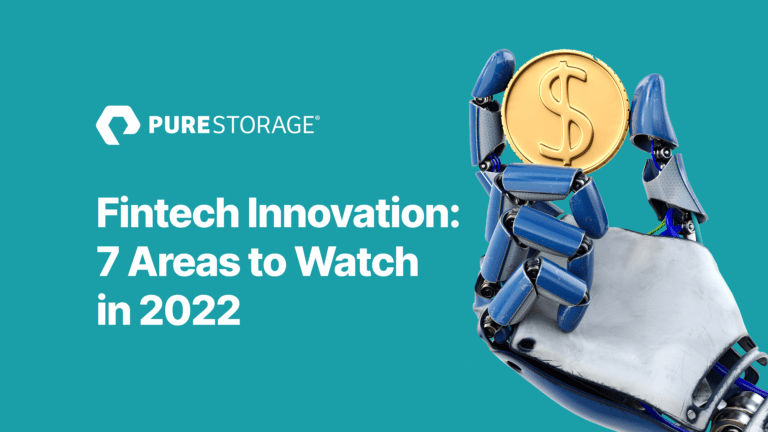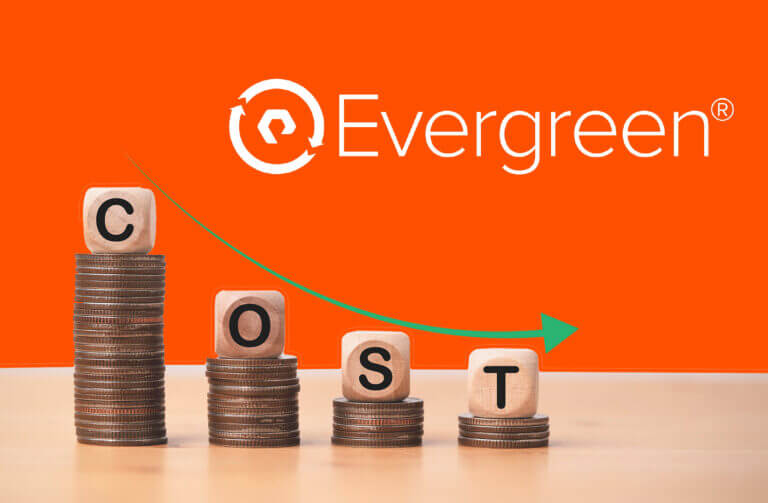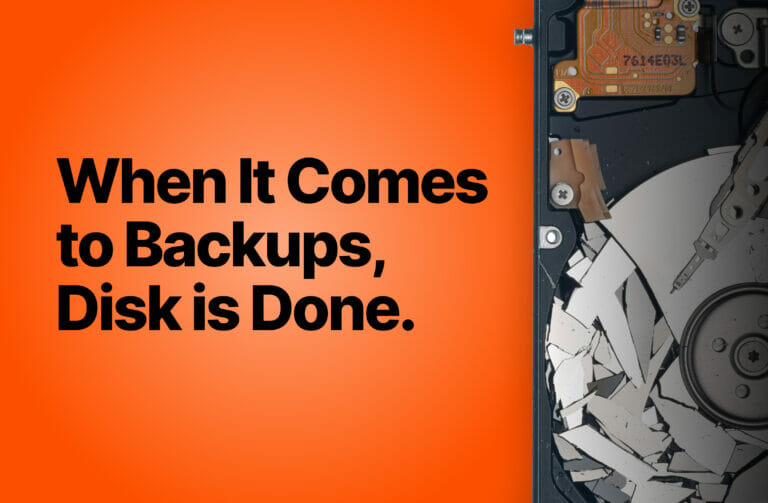What fintech innovations will help your financial services org get ahead in 2023?
The start of a new year is a great time to take stock and cast a gaze forward to create some goals for the months and years ahead. For fintech innovators, this can be particularly helpful because the normal day-to-day course of events comes rushing by like a raging river, making time for reflection and insight a rare luxury. With that in mind, here are seven ideas and areas that deserve special attention—and offer potentially outsized opportunities—in the year ahead.
Seven Fintech Innovations
1. There’s nothing artificial about AI
Until recently, the promise of artificial intelligence (AI) and machine learning (ML) was more the province of science fiction than real-world application. That has changed dramatically over the past several years, but, in truth, we’ve only begun to scratch the surface of opportunities in practical AI and ML. As highlighted in our recent white paper, Shaping the Future: AI for Financial Services, investment and opportunity here can be expected to grow dramatically in the years ahead, making a current investment likely to generate outsized returns down the road.
“Next year, a new wave of AI innovation will grow across fintech, unleashing deeper intelligence and speed and extending the competitive advantage of the industry. By driving more processes through machine learning and automation, we are set to see AI transform several business-crucial elements other than customization alone.” –Ryan Joyce, Head of Fintech, UK & I, Salesforce
2. Get real (time)
As the cost of compute resources falls, data accessibility increases, and tools like AI and ML grow in sophistication, it’s becoming more feasible to both increase the cadence of calculation and expand the frontiers of decision-making. Opportunities abound to take advantage of these enhanced analytics capabilities in ways that were previously out of reach. For example, increased capabilities in real-time risk calculation can be used to extend credit decisions to the point of sale, thereby supplanting incumbent players of these types of services.
“In a seemingly short time, the use of real-time data to make operational decisions and deliver enhanced customer services has moved from an occasionally used, value-added option to a competitive necessity.” –Peter Guagenti, Chief Marketing Officer, MemSQL
3. The cloud is dead. Long live the cloud
The original iteration of cloud as a cost-cutting data store is long past, and so too is the notion that there is a binary choice between on-premises compute and public cloud. While on-premises solutions will certainly continue to shrink dramatically in the years ahead, the replacement will be a rightsized offering of multiple flavors of cloud: public, private, multi, and hybrid. The key is a strategic approach to cloud efforts to meet the task at hand and support on-demand cloud economics, as well as an ability to think flexibly across the whole spectrum of options to reveal unique combinations that are purpose-built for a particular opportunity.
“The cloud is about how you do computing, not where you do computing.” – Paul Maritz, former CEO of VMware and Pivotal
Related reading: FinOps: The Key to Cloud Cost Management >>
4. There’s an “aaS” for that
The advent of the smartphone led to the emergence of apps for nearly every situation and created whole new types of businesses. Similarly, the introduction and acceptance of open source tools and protocols, along with an agile development mindset, spawned the proliferation of “as-a-service” (aaS) offerings. Recurring revenue models and aaS obliterate long-standing boundaries based on industry verticals and substitute an approach that is based on functionality first. The successful introduction of aaS in a particular area is a recipe for success.
“…Software as a service (SaaS) is a business model which will continue to attract more firms in 2022, leveling the playing field between them and the new entrants, and between the private wealth industry as a whole and the rest of financial services.” –Alexandre Duret, Product Director, Wealth Management, Temenos
5. Back (office) to the future
There has been a great deal of focus to date on fintech innovations like payments or hot services like buy now, pay later (BNPL), while other, less revenue-oriented areas have been neglected. A great example is back-office processes. A soon-to-be-released survey conducted by FinTech Futures for Pure Storage reveals that transformation of back-office processes has lagged due to a narrowly focused belief that views the area strictly as a cost center. Such a view is too narrow and hides the fact that increased efficiency and the melding of functions can deliver positive returns from areas traditionally viewed only as costs while also reducing the risk of costly cyberattacks targeting legacy technology.
“The gap in success between the organizations that embraced digital transformation and those that were laggards was evident in the way new customers were acquired and onboarded, the deployment of back-office automation, improvement in customer experience, and commitment to innovation.” –Jim Marous, Co-Publisher, The Financial Brand
Learn why back-office operations are one workload that IT pros are moving to the cloud >>
6. Death, taxes, and regulation
The good news is that there is opportunity in regulation. As we discuss in our new white paper, Making Sense of RegTech for Financial Services, RegTech has exploded in the past several years and this trend shows no signs of slowing down anytime soon. In fact, the question of data privacy and compliance issues such as AML and “the right to be forgotten” are likely to grow for some time. Instead of treating this as an issue to be avoided, why not flip the script and take advantage of this trend by designing products or offering services that meet the current and future needs of the financial services industry?
“RegTech, with the help of big data and machine learning technology, can offer crucial data on money laundering activities, thus reducing the risk associated with the company’s compliance department. Furthermore, RegTech can also reduce administrative overhead, ensure financial stability, and protect customers.” –Nikunj Gundaniya, Product Manager, Digipay.guru
7. Get on the blockchain
Blockchain has long captured the imagination, but 2021 was the year that it also captured the VC pocketbook. With more than $30 billion in investment in blockchain and crypto from venture capitalists last year, more than in all other years combined, blockchain took steps toward reaching critical mass. While wholesale adoption is a way off in the future, the opportunities exist now to lay the rails on which the blockchain future will be run. The focus is on infrastructure with an eye toward the winning combinations of blockchain with existing technologies and industries in ways that will create both opportunities to disrupt incumbents, as well as generate whole new products, processes, and even industries.
“This will be the year that many (certainly not all) incumbent financial institutions take digital assets seriously enough to start spending money on capabilities.” –Dan Rosen, Founder and General Partner, Commerce Ventures
The Keys to Fintech Success in 2022
An old Danish proverb (also attributed to Mark Twain, Niels Bohr, and Yogi Berra), states that it is difficult to make predictions, particularly about the future. This most certainly applies to fintech and financial services as well. What is known, however, is that current success is usually replicated and amplified by subsequent innovation. The issues addressed here are receiving a great deal of attention, and it’s likely that these fintech innovations will continue. Navigating these uncertain waters successfully will require a focus on innovation, the right technology to support your efforts, and agility.
“If the past few years have taught us anything, it is that an innovative and open mindset, coupled with the right digital tools, can help businesses regardless of their size or industry to continue their growth, even in uncertain times.” –Kaushalya Somasundaram, UK Head of Payments Partnerships & Industry Relations, Square
Ready to tackle your resolutions for 2022? Learn how Pure Storage® enterprise-class data solutions accelerate financial services.
![]()






